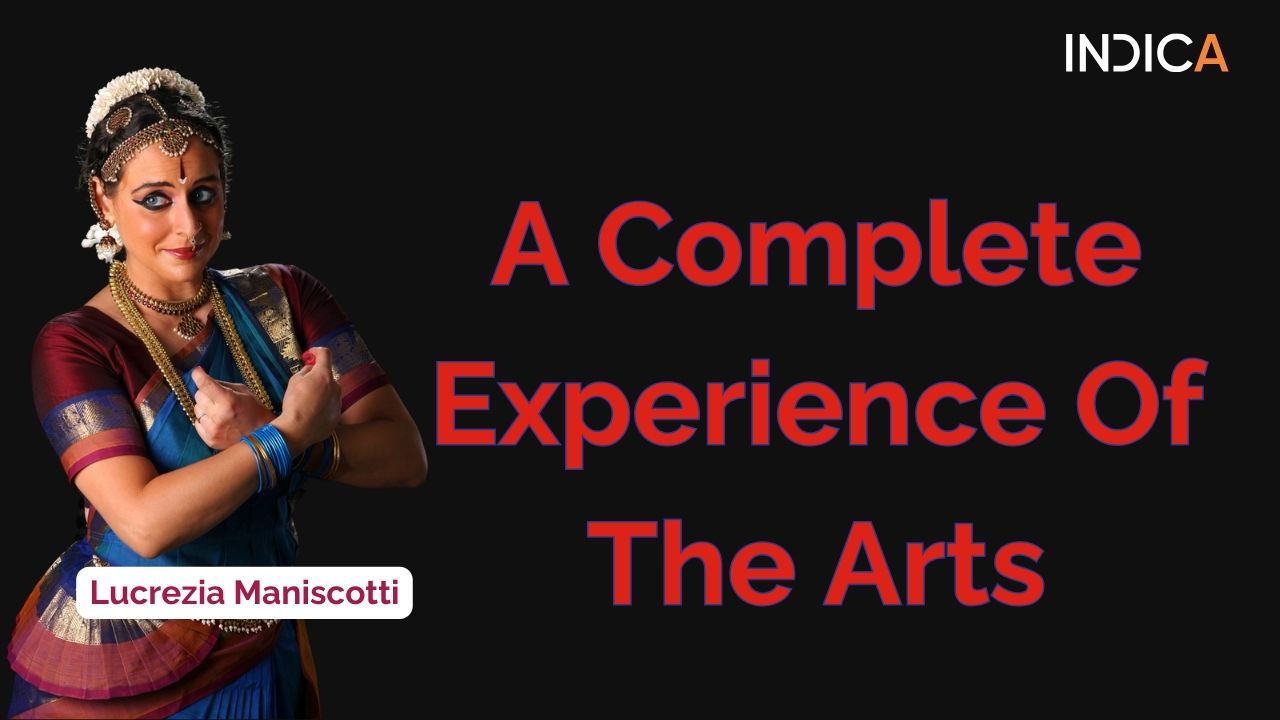US based author Aditi Bannerjee says her maiden book - The Curse of Gandhari - is in a new genre which can be called speculative fiction, where she weaves her story around a character from India's epic Mahabharata. She is one of a recent crop of Indian women writers who are interpreting Indian texts with fresh imagination while taking care to keep the original intact.
The Mahabharata uses a familiar human habit in its narration of transferring blame. Either through self-reproach or by blaming another.
It ends with
Gandhari, the mother of Kauravas, holding Krishna responsible for the war. In
anger and grief, Gandhari turns to Krishna and says (Chaturvedi Badrinath- The Mahabharata an Inquiry into the Human
Condition):
You could have prevented all this
from happening, but you didn’t. You let the destruction of this family take
place.
If I have earned any merit in living
the way I have, then with the force of that merit I curse you.
In the thirthy-sixth year from now,
your sons and your relatives and your advisers will likewise die fighting each
other.
You will drift in the deep woods,
unseen, unknown, alone, helpless. And you will die a mean death.
As the women of the Bharata clan are
weeping now, the women of your family will likewise weep over their dead.
Krishna does
the unexpected. Instead of commiserating with a grieving mother, he blames her
back. He accuses her of “transferring to him
the accountability that properly belonged to her for not restraining her ‘wicked-hearted, vain and jealous,
cruel and arrogant, disobedient and disregarding, contemptuous son Duryodhana.
How can you blame me for what you should blame yourself for? You are wholly
accountable for the destruction of the Kuru clan’ (Badrinath)
Aspects of
accountability, reproach, human will, Dharma and even karma are all tossed back
and forth. A corporate lawyer pursuing her Executive MBA in Columbia
University, Aditi Banerjee couldn’t have picked a more complex figure for her
first book – The Curse of Gandhari. In
the midst of her busy life, she is learning Sanskrit and has as her source Bibek
Debroy’s English translation of the unabridged Critical Edition of the
Mahabharata. She took one year to write the book, which is engaging and brisk
in its narration. Uncomfortable with
classifications into ‘mythological fiction’ or ‘fantasy’, she calls her book a ‘speculative fiction’ defined by her as
– “ Taking something that is true, the Itihaasa,
and using one’s imagination and creative liberties to ‘speculate’ about the
characters and stories between and beyond the lines of the original.”
Banerjee
says the book is for “lovers of the Mahabharata who would like to see an
alternative perspective of a lesser known character. For people who would be drawn
to Gandhari’s story as a strong, intelligent woman who was torn between Dharma
and family loyalty, who had incredible willpower and strength but struggled to
rise above her own circumstances, who won the respect of the rishis and devas
yet could not move past her own bitterness and regret.”

In this
interview she explains her interpretation of the complexity of Gandhari:
Is there more than one meaning to the
title The Curse of Gandhari?
I suppose it
is a little bit of play on words. The two things Gandhari is most famous for
are her blindfold and the curse she pronounces on Krishna at the end of the
war. Both are actions she chooses on her own and are evidence of a strong,
powerful, wilful princess and queen. In both acts, there is an element of
pathos and poignancy – a woman in a way resisting her fate with the means
available to her. Rather than meekly accept her marriage to a blind prince, she
immediately blindfolds herself in an act of devotion or spite or some mix of
both. Rather than submit to her family’s defeat in the war, she rails against
Krishna and curses him, a curse he accepts with a smile. On the one hand, the
curse is her act of agency in defiance of her fate. On the other, she appears
to be accursed, perhaps self-accursed, in finding herself again and again on
the losing side of life. So, ‘curse’ is meant to refer to both sides of her
personality – astonishing acts of willpower and also the recurring sense of
victimhood she falls prey to again and again.
In the blame-game, do
you think Gandhari was a negligent mother, because of whose act of being
blindfolded voluntarily, she could not keep an eye on the misdeeds of her
children, literally as well as figuratively?
I have heard
that characterization as well. Certainly she is not the extraordinary mother
that Kunti proves to be for the Pandavas, including the two sons of Madri she
adopts as her own, setting aside Kunti’s treatment of Karna. However, I do not
think the Mahabharata lends itself to black-and-white judgements of its
characters. Imagine what it must have been like for Gandhari to have one
hundred sons (and one daughter). While it is a traditional blessing to
pronounce on all wives and mothers, how difficult it must have been to rein in
such strong personalities as the Kaurava boys. And what kind of influence could
she wield when faced with Dhritarashthra’s own ambitions for the throne, his
refusal to accept the wise counsel of Vidura, and then the wiles of her own
brother Shakuni. The deck was stacked against her, even if she had not been
blindfolded. It is easy to say that in blindfolding herself, Gandhari rendered
herself less useful and therefore a weaker mother and queen. There is some
truth to that. But the Mahabharata itself does not take such a pejorative view
of her blindfold. It is because of this act of devotion, her piety, that she
accumulates enough tapobala to
protect her son from death, through the power of her gaze, to curse Krishna, to
blacken Yudhishthira’s toenails with her mere glance. Gandhari and her
blindfold resist easy characterization, so I do not think of her as either a
bad mother or a good mother – she is just an extraordinarily complicated figure
and one who I think we can admire and respect even as we acknowledge her
potential flaws.
Do you find any
parallels in contemporary life with Gandhari?
I actually
think a lot of women today could relate with Gandhari. What to do when you find
yourself in unfortunate circumstances? Do you martyr yourself, resist in some
passive-aggressive way, or take responsibility for yourself and the situation?
Gandhari was a woman of extraordinary strength and intelligence. I truly
believe she could have been the best of queens had she fully engaged in her
dharma as a queen of Hastinapur. But something held her back. And I think as
women we often hold ourselves back instead of completely leaning in. I also
think women can relate to Gandhari’s quandary of herself being a noble
character but surrounded by men, her husband and sons, with wicked intentions.
How can one be a devoted, loyal wife and mother but still stand up for Dharma
in such a situation? There are no easy answers from Gandhari’s life but I think
her struggle is one that we can relate to even today.
Which aspects of
Gandhari's life did you feel connected with most?
I liked that
she was not a conventional heroine. She was not meek or submissive, although
she was pious and devout. As a child, I thought her act of blindfolding herself
was terribly romantic and noble. As I grew up, I saw it through a more
jaundiced eye, wondering if it was instead an act of spite or perhaps
self-martyrdom that took her away from her own dharma and potential. In writing
this book, I thought I would find an answer. But I realized that reducing
Gandhari to a judgement of whether she should or should not have blindfolded
herself does not do justice to the depth and nuance of her character. So, there
is this ambiguity about her which draws me to her, because we tend to expect
our females to be villains or heroines and it is refreshing to have someone who
does not neatly fit either category. I think of her as a noble, strong woman of
incredible potential who was not able to live up to that full potential in her
lifetime.
Kunti is as much
responsible for neglecting Karna as Gandhari is for the misdeeds of her sons.
Do you find any similarity between the two?
I think
there are such interesting parallels and contrasts between them. Kunti is
criticized for abandoning her son; Gandhari is criticized for not letting go of
her son. Both have to deal with the tragedy of their choices. A large part of
the book is devoted to the relationship and dynamic between Kunti and Gandhari
and their roles as mothers, wives and queens.
Where have you allowed
yourself to take artistic liberty with the epic?
I tried to
not contradict anywhere the text of the Mahabharata but did speculate large
parts of her story beyond the confines of the epic. For example, her girlhood
days in Gandhara, and most especially, the last days of her life in the forest,
waiting to die. Her relationship with Satyavati and Kunti, her brother and
Bhishma, her thoughts about her husband and Pandu, all of this has been
influenced by my imagination. What I tried to do was be true to the ethos of
Gandhari’s character and life as depicted in the Mahabharata and simply expand
upon those qualities and themes in the creative liberties that I took. I was
always careful to preserve her fundamental persona as a woman of incredible
strength, power, piety and devotion.
Can Gandhari appeal to modern gender
sensibilities? How do you navigate explain that in your novel?
Yes. I think
it is hard for one to fathom the depth of her piety and devotion. It is said
that from the moment she blindfolded herself, she never thought of another man
but her husband. The very act of giving up one’s eyesight for a stranger, for a
husband who was perhaps unwanted, is astonishing. I think such an act of
sacrifice may not neatly fit today’s gender sensibilities and a modern reader
may take a more cynical view of it. However, I think it is possible to both see
Gandhari as being a reluctant wife, one who had misgivings about her husband
and sons, yet also as an utterly loyal, devout woman, mother and wife. It is
possible to encompass that traditional sensibility with the scepticism of the
modernist, and that is what I have tried to do in this novel.
Your Gandhari seems a
far more superior character to Dhridhrashtra? Is that something you have done
consciously?
Perhaps. I
think it would be much less interesting if Gandhari had a high opinion of
Dhritarashthra. The essential conflict for Gandhari, I think, is that as a
truly noble woman herself, she can see the weaknesses of her husband and son
but also feels loyalty towards them. She wants to be on the side of Dharma but also
does not want to abandon them. That is the conflict she cannot resolve.




